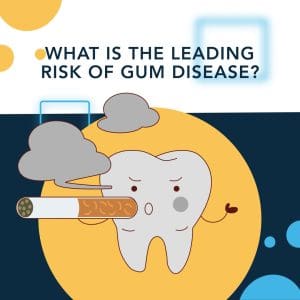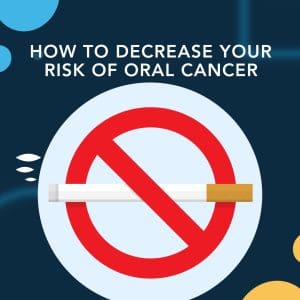Smoking is widely recognized as a major risk factor for various systemic health issues, but its impact on oral health is equally profound and often underestimated. In this article, we’ll explore how smoking adversely affects the mouth, teeth, and gums. From higher risks of oral cancers and gum disease to the aesthetic concerns of stained teeth and bad breath, this comprehensive overview sheds light on the significant oral health challenges faced by smokers.
How Can Smoking Affect Your Oral Health?
Smoking can affect your oral health in many ways that you may not have initially considered. The impact extends beyond the obvious to subtler yet significant issues that can compromise your overall dental wellness. Understanding these effects is vital for maintaining good oral hygiene and preventing long-term damage that smoking can cause to your mouth. If you’re experiencing any related issues, consulting a dentist near me in Broward County can provide you with targeted advice and treatment.
Can Smokeless Tobacco Products Affect Your Oral Health?
Smokeless tobacco products, such as chewing tobacco and snuff, can significantly affect oral health. While they don’t produce smoke, their chemical content still poses serious risks. These products can cause gum disease, tooth decay, and increase the risk of oral cancer. Understanding the harmful effects of smokeless tobacco is crucial for anyone considering its use, emphasizing the importance of avoiding these products to maintain optimal oral health.
What Are the Oral Health Risks of Smoking?
Smoking can severely impact oral health in multiple detrimental ways. It increases the risk of gum disease by affecting the attachment of bone and soft tissue to your teeth. Smoking also contributes to the development of oral cancers and can cause complications after oral surgeries. Smokers often experience bad breath and stained teeth. The habit also lowers the success rate of dental implant procedures and leads to a slower healing process for oral tissues.
Gum (Periodontal) Disease
Smoking is a leading risk factor for gum (periodontal) disease. It impairs blood flow to the gums, which compromises the gum tissue’s ability to heal and resist infection. As a result, smokers face a higher incidence of gum infections, which can lead to tooth loss if left untreated.
Tooth Discoloration
Smoking can cause tooth discoloration due to the presence of nicotine and tar in tobacco products. These substances can stick to the enamel, resulting in yellow or brown stains on the teeth. This cosmetic problem can be difficult to remove and often requires professional teeth whitening treatments, which can impact the appearance and confidence of smokers.
Oral Cancer
Smoking is a major risk factor for oral cancer, dramatically increasing the likelihood of developing cancerous lesions in the mouth, throat, and lips. Tobacco smoke contains numerous carcinogens that damage cellular DNA in oral tissues, leading to mutations and cancer. Early detection is critical, as oral cancer can be life-threatening if not treated promptly.
Delayed Healing Processes
Smoking significantly hinders the body’s healing processes, particularly in the oral cavity. The chemicals in tobacco smoke impair blood flow, reducing the oxygen and nutrients essential for healing. This delay can complicate recovery from dental surgeries, such as tooth extractions or periodontal treatments, and can even increase the risk of infection and complications.
Increased Plaque & Tartar Buildup
Smoking exacerbates the accumulation of plaque and tartar on teeth, as it promotes the growth of bacteria in the oral cavity. This increased buildup not only leads to bad breath but also heightens the risk of cavities and gum disease. Regular professional cleanings become even more necessary for smokers to manage these conditions.
Bad Breath
Smoking is a common cause of chronic bad breath, or halitosis, due to the lingering odor of tobacco smoke and the increased buildup of bacteria in the mouth. These bacteria produce foul-smelling compounds, increasing odor issues in the mouth. Regular oral hygiene can help, but stopping smoking is the most effective solution for eliminating tobacco-related bad breath.
Tooth Loss
Smoking significantly increases the risk of tooth loss. The harmful effects of smoking on gum health often lead to severe periodontal disease, a major cause of tooth loss in adults. The weakened gum tissue fails to support the teeth adequately, leading to their eventual loosening and loss.
Can Smoking Affect Treatment Outcomes?
Smoking can severely affect treatment outcomes in dental care. It impedes healing and increases the risk of post-surgical complications, such as infections and delayed recovery. Smokers also experience lower success rates with dental implants and other restorative procedures due to compromised bone and tissue health. Quitting smoking is often recommended to improve the effectiveness of the treatment and ensure better long-term oral health.
Increased Risk of Complications
Smoking increases the risk of complications following dental treatments. The impaired blood flow and reduced oxygen delivery to tissues can lead to infections, poor wound healing, and failure of dental implants. Smokers are more likely to experience these adverse outcomes, making even routine procedures more complex and less predictable.
Dental Implants
Smoking can have a negative impact on the success of dental implants. The harmful substances found in tobacco can hinder the process of osseointegration, which is when the implant fuses with the jawbone. This can result in a higher failure rate of implants in smokers, as the crucial strong and stable connection to the bone becomes compromised.
Delayed Healing After Extractions
Smoking can significantly delay healing after tooth extractions. The restricted blood flow and reduced oxygen to the extraction site hinder the body’s natural healing processes. This not only prolongs recovery time but also increases the risk of developing painful dry sockets and other post-operative complications, which can complicate the healing trajectory.
Less Effective Periodontal Treatment Outcomes
Smoking can lead to less effective periodontal treatment outcomes. The habit impairs the body’s immune response and reduces blood flow to gum tissues, hindering recovery and regeneration after treatments for gum disease. Consequently, smokers may see slower improvement, less reduction in pocket depth, and a higher recurrence rate of periodontal issues compared to non-smokers.
Cosmetic Dental Procedures
Smoking negatively impacts the outcomes of cosmetic dental procedures. The habit can lead to poor color matching and faster discoloration of restorations like veneers and crowns due to the staining properties of nicotine and tar. Additionally, the reduced healing capacity of smokers can compromise the longevity and appearance of cosmetic enhancements.
Oral Cancer Recurrence
Smoking significantly increases the risk of oral cancer recurrence. The carcinogens in tobacco smoke continue to promote mutations in the DNA of oral cells, thereby heightening the likelihood of cancerous cells redeveloping even after initial successful treatment. Quitting smoking is critical to reducing this risk and improving long-term survival rates.
Benefits of Quitting Smoking for Your Oral Health
Giving up smoking can have a multitude of benefits for your oral health, significantly improving the overall condition of your mouth, teeth, and gums. Understanding these benefits can serve as a strong motivating factor for quitting, leading to better treatment outcomes and a healthier oral environment.
Our offices in Davie, Plantation, and Tamarac, FL, offer advanced screenings and a supportive environment to help you take proactive steps toward a healthier smile. Quitting smoking, paired with routine dental visits, can dramatically improve your oral health and overall well-being.
Reduced Risk of Gum Disease
If you quit smoking, your chances of developing gum disease drop significantly. Quitting smoking helps improve blood flow to the gums, which in turn enhances their ability to fight infections and inflammation. This positive change can significantly reduce the likelihood of gum deterioration and related complications, leading to healthier gums and a stronger foundation for your teeth.
 Decreased Risk of Oral Cancer
Decreased Risk of Oral Cancer
Quitting smoking significantly decreases the risk of oral cancer. Tobacco smoke contains numerous carcinogens that can damage the DNA of cells in the mouth, leading to cancerous mutations. By stopping smoking, you reduce your exposure to these harmful substances and substantially lower your chances of developing oral cancer.
Improvement in Breath
Quitting smoking leads to a noticeable improvement in breath quality. Smoking is a primary cause of chronic bad breath due to the accumulation of odor-causing particles and bacteria in the mouth. By giving up cigarettes, you eliminate these sources of foul odor, resulting in fresher breath and a cleaner feeling in the mouth.
Whiter Teeth
When you quit smoking, it can help improve the appearance of your teeth by making them whiter. This is because the nicotine and tar found in cigarettes tend to stain your teeth yellow or brown. By quitting smoking, you can prevent further discoloration of your teeth and eventually notice a natural lightening of your teeth over time, which can improve your smile.
Lowered Risk of Tooth Loss
Quitting smoking can significantly reduce the risk of tooth loss. Smoking is one of the major contributors to periodontal disease, which weakens teeth’s supporting structures and ultimately leads to their loss. By stopping smoking, you can improve your gum health and stability, thereby preserving your natural teeth and maintaining a healthier, more robust dental foundation.
Better Taste & Smell
Quitting smoking enhances your sense of taste and smell. Tobacco smoke diminishes these senses by damaging the nerve receptors responsible for detecting flavors and scents. Once you stop smoking, these receptors begin to recover, improving your ability to enjoy the full range of tastes and smells, which can enrich your overall sensory experiences.
Prevention of Leukoplakia
Quitting smoking can help prevent the development of leukoplakia, a condition characterized by white patches inside the mouth that can potentially become cancerous. Tobacco is a key risk factor for leukoplakia, so quitting reduces the irritation that tobacco smoke causes to the mucous membranes, lowering the likelihood of these patches forming.
Overall Health Benefits
Quitting smoking can greatly benefit your overall health by reducing the risk of various diseases such as heart disease, stroke, and cancer. Not only that, quitting smoking can improve lung function and boost your immune system, making it easier for your body to fight infections and heal more effectively. All of these benefits lead to a better quality of life and a longer lifespan.
Strategies to Quit Smoking
There are multiple methods that can assist you in quitting smoking. Each strategy is intended to guide and support you throughout the cessation process. Quitting smoking can have numerous benefits, including better oral health, reduced risk of gum disease, oral cancer, and tooth loss, as well as an overall improvement in your well-being. Choosing the right approach can be a crucial step towards leading a healthier lifestyle.
Set a Quit Date
Setting a quit date is a fundamental step in your journey to stop smoking. Choose a date that allows you enough time to prepare but is not too far in the future. This specific commitment can mentally prepare you for the change, helping you organize support and resources to increase your chances of success.
Identify Triggers
Identifying your smoking triggers is essential in your effort to quit. Recognizing situations, emotional states, or activities that prompt your urge to smoke allows you to develop strategies to avoid or manage these triggers effectively. By understanding these patterns, you can better prepare to resist cravings and maintain your commitment to quitting and improving your overall oral health.
Use Nicotine Replacement Therapy (NRT)
Using nicotine replacement therapy (NRT) can be an effective strategy to quit smoking. NRT products, such as patches, gum, lozenges, inhalers, or nasal sprays, provide a controlled dose of nicotine without the harmful chemicals found in cigarettes. This helps alleviate withdrawal symptoms and reduce cravings, making it easier to break the habit gradually.
Consider Prescription Medications
Considering prescription medications can significantly aid in quitting smoking. These medications work by reducing cravings and withdrawal symptoms associated with nicotine dependency. Consulting with a healthcare provider can help you determine the most suitable medication based on your health profile and smoking habits.
Seek Behavioral Support
Engaging with counseling services, support groups, or therapy can provide the necessary encouragement and coping strategies to quit smoking. These resources help address the psychological aspects of addiction, making it easier to manage cravings and stick to your quit plan.
Personalized Care for Smokers at Smile Every Day Dentistry
At Smile Every Day Dentistry, we understand that smoking poses unique challenges to oral health, but we’re here to help. Dr. Steve Criscuolo and Dr. Mo Sirage work closely with patients to identify and address smoking-related concerns, such as gum disease and tooth discoloration. With a focus on prevention and education, our team ensures you have the tools and knowledge to protect your teeth and gums from further damage.
For those looking to restore their smile, our office offers professional teeth whitening and other cosmetic solutions to combat the staining effects of nicotine and tar. We also provide tailored periodontal care to help reverse gum damage caused by smoking. Whether it’s addressing tooth loss with implants, improving alignment through orthodontics, or performing advanced gum surgeries, our team combines expertise with a patient-centered approach to deliver the best outcomes.
Schedule a Dental Checkup Appointment
Scheduling a dental checkup is especially important if you are a smoker or have recently quit. Regular dental visits allow your Davie dentist to assess the effects of smoking on your oral health, including checking for signs of gum disease, oral cancer, and other related conditions. These checkups also provide an opportunity to discuss how quitting smoking can further improve your oral health. Don’t wait— Call our office to schedule a dental checkup with a dentist in Davie, Florida, today and take a proactive step toward a healthier mouth.
December 6, 2024

 Adult
Adult




 Decreased Risk of Oral Cancer
Decreased Risk of Oral Cancer